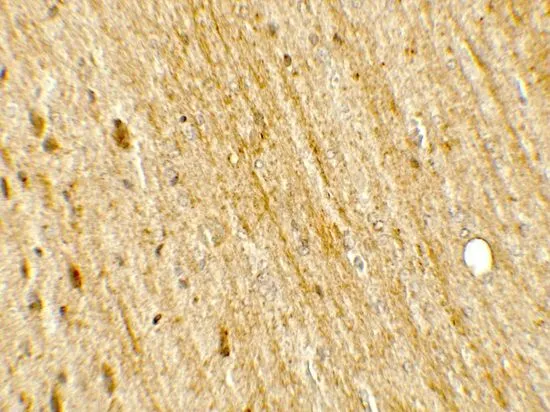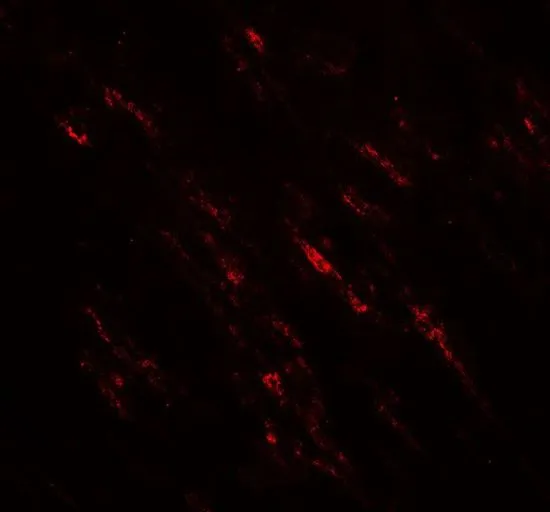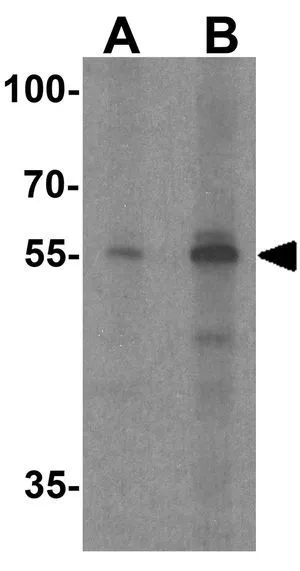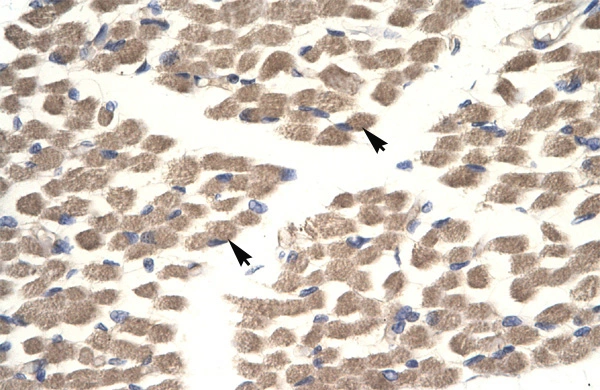
IHC-P analysis of rat brain tissue using GTX17217 POU2F3 antibody. Working concentration : 5 μg/ml
POU2F3 antibody
GTX17217
ApplicationsWestern Blot, ELISA, ImmunoHistoChemistry, ImmunoHistoChemistry Paraffin
Product group Antibodies
ReactivityHuman, Mouse, Rat
TargetPOU2F3
Overview
- SupplierGeneTex
- Product NamePOU2F3 antibody
- Delivery Days Customer9
- Application Supplier NoteWB: 1 - 2 microg/mL. IHC-P: 5 microg/mL. *Optimal dilutions/concentrations should be determined by the researcher.Not tested in other applications.
- ApplicationsWestern Blot, ELISA, ImmunoHistoChemistry, ImmunoHistoChemistry Paraffin
- CertificationResearch Use Only
- ClonalityPolyclonal
- Concentration1 mg/ml
- ConjugateUnconjugated
- Gene ID25833
- Target namePOU2F3
- Target descriptionPOU class 2 homeobox 3
- Target synonymsEpoc-1, OCT-11, OCT11, OTF-11, PLA-1, PLA1, Skn-1a, POU domain, class 2, transcription factor 3, POU domain transcription factor OCT11a, octamer-binding protein 11, octamer-binding transcription factor 11, transcription factor PLA-1, transcription factor Skn-1
- HostRabbit
- IsotypeIgG
- Protein IDQ9UKI9
- Protein NamePOU domain, class 2, transcription factor 3
- Scientific DescriptionThis gene encodes a member of the POU domain family of transcription factors. POU domain transcription factors bind to a specific octamer DNA motif and regulate cell type-specific differentiation pathways. The encoded protein is primarily expressed in the epidermis, and plays a critical role in keratinocyte proliferation and differentiation. The encoded protein is also a candidate tumor suppressor protein, and aberrant promoter methylation of this gene may play a role in cervical cancer. Alternatively spliced transcript variants encoding multiple isoforms have been observed for this gene. [provided by RefSeq, Sep 2011]
- ReactivityHuman, Mouse, Rat
- Storage Instruction-20°C or -80°C,2°C to 8°C
- UNSPSC41116161
References
- Significance of achaete-scute complex homologue 1 (ASCL1) in pulmonary neuroendocrine carcinomas; RNA sequence analyses using small cell lung cancer cells and Ascl1-induced pulmonary neuroendocrine carcinoma cells. Kudoh S et al., 2020 Jun, Histochem Cell BiolRead this paper









